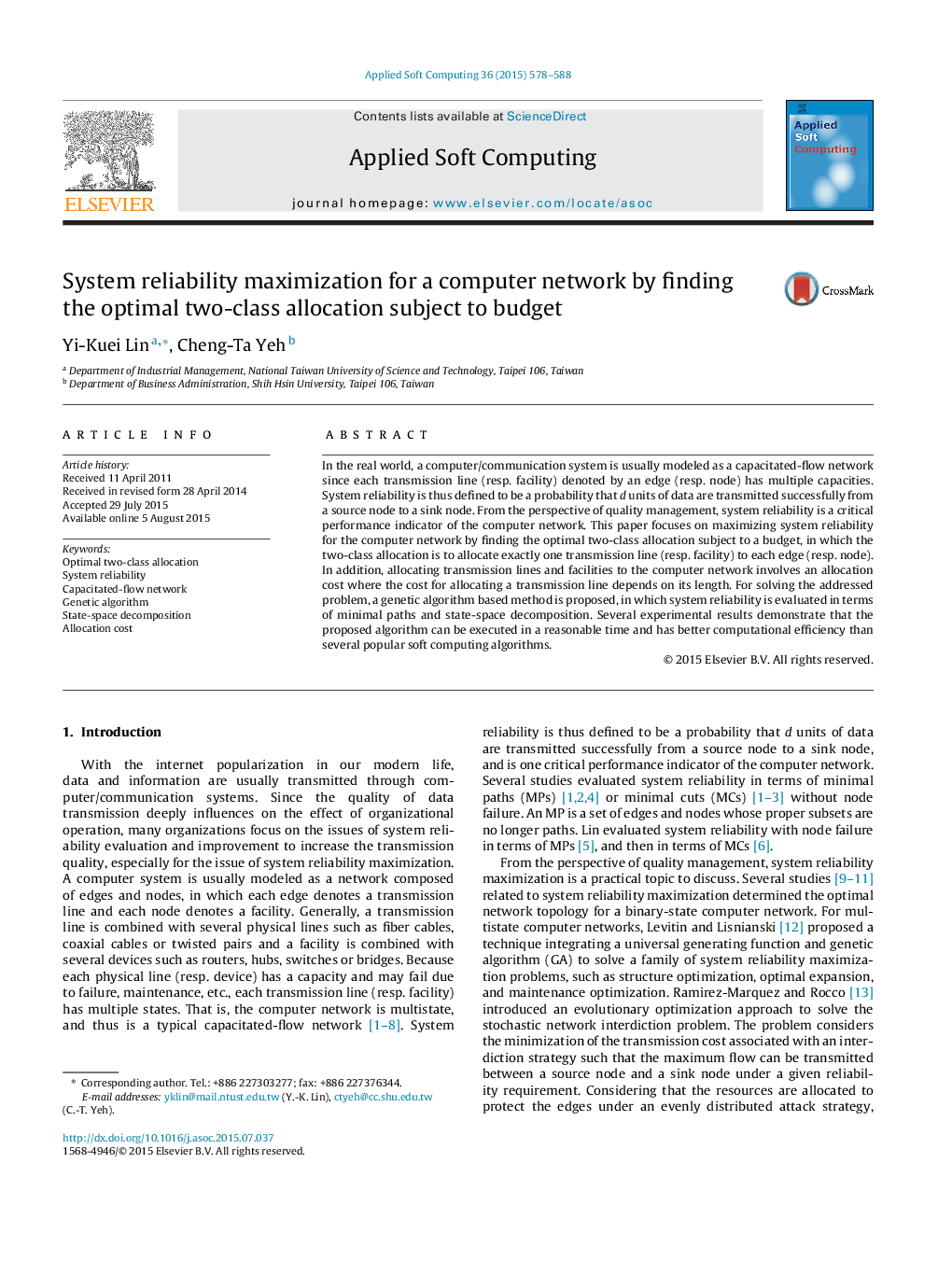| Article ID | Journal | Published Year | Pages | File Type |
|---|---|---|---|---|
| 494836 | Applied Soft Computing | 2015 | 11 Pages |
•A capacitated-flow network with multistate components is modeled to describe a practical computer network.•Focusing on allocating two classes of components to the computer network.•A GA based algorithm to maximize system reliability subject to a budget is proposed.•The proposed algorithm has better computational efficiency than several popular soft computing algorithms.
In the real world, a computer/communication system is usually modeled as a capacitated-flow network since each transmission line (resp. facility) denoted by an edge (resp. node) has multiple capacities. System reliability is thus defined to be a probability that d units of data are transmitted successfully from a source node to a sink node. From the perspective of quality management, system reliability is a critical performance indicator of the computer network. This paper focuses on maximizing system reliability for the computer network by finding the optimal two-class allocation subject to a budget, in which the two-class allocation is to allocate exactly one transmission line (resp. facility) to each edge (resp. node). In addition, allocating transmission lines and facilities to the computer network involves an allocation cost where the cost for allocating a transmission line depends on its length. For solving the addressed problem, a genetic algorithm based method is proposed, in which system reliability is evaluated in terms of minimal paths and state-space decomposition. Several experimental results demonstrate that the proposed algorithm can be executed in a reasonable time and has better computational efficiency than several popular soft computing algorithms.
Graphical abstractFigure optionsDownload full-size imageDownload as PowerPoint slide
